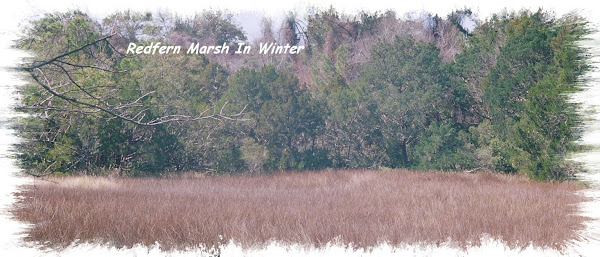Aldous Huxley was a humanist and pacifist, and he was latterly interested in spiritual subjects such as parapsychology and philosophical mysticism. He is also well known for advocating and taking psychedelics.
By the end of his life Huxley was considered, in some academic circles, a leader of modern thought and an intellectual of the highest rank, and highly regarded as one of the most prominent explorers of visual communication and sight-related theories as well.[1]
Contents[hide] |
Biography
See also: Huxley family
Early years
Aldous Huxley was born in Godalming, Surrey, UK in 1894. He was the third son of the writer and school-master Leonard Huxley and first wife, Julia Arnold who founded Prior's Field School. Julia was the niece of Matthew Arnold and the sister of Mrs. Humphrey Ward. Aldous was the grandson of Thomas Henry Huxley, the zoologist, agnostic and controversialist ("Darwin's Bulldog"). His brother Julian Huxley and half-brother Andrew Huxley also became outstanding biologists. Huxley had another brother Noel Trevenen (1891–1914) who committed suicide after a period of clinical depression.Huxley began his learning in his father's well-equipped botanical laboratory, then continued in a school named Hillside. His teacher was his mother who supervised him for several years until she became terminally ill. After Hillside, he was educated at Eton College. Huxley's mother died in 1908, when he was fourteen. In 1911, he suffered an illness (keratitis punctata) which "left [him] practically blind for two to three years".[2] Aldous's near-blindness disqualified him from service in the First World War. Once his eyesight recovered sufficiently, he was able to study English literature at Balliol College, Oxford. In 1916 he edited Oxford Poetry and later graduated with first class honours.
- "I believe his blindness was a blessing in disguise. For one thing, it put paid to his idea of taking up medicine as a career...His uniqueness lay in his universalism. He was able to take all knowledge for his province." [3]
Following his education at Balliol, Huxley was financially indebted to his father and had to earn a living. He taught French for a year at Eton, where Eric Blair (later known by the pen name George Orwell) and Stephen Runciman were among his pupils, but was remembered as an incompetent and hopeless teacher who couldn’t keep discipline. Nevertheless, Blair and others were impressed by his use of words.[4] For a short while in 1918, he was employed acquiring provisions at the Air Ministry.
Significantly, Huxley also worked for a time in the 1920s at the technologically-advanced Brunner and Mond chemical plant in Billingham, Teesside, and the most recent introduction to his famous science fiction novel Brave New World (1932) states that this experience of "an ordered universe in a world of planless incoherence" was one source for the novel.
Huxley completed his first (unpublished) novel at the age of seventeen and began writing seriously in his early twenties. His earlier work includes important novels on the dehumanizing aspects of scientific progress, most famously Brave New World, and on pacifist themes (for example, Eyeless in Gaza). In Brave New World Huxley portrays a society operating on the principles of mass production and Pavlovian conditioning. Huxley was strongly influenced by F. Matthias Alexander and included him as a character in Eyeless in Gaza.
Middle years
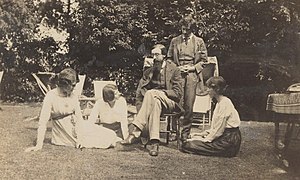
Left to right: Lady Ottoline Morrell, Maria Nys, Lytton Strachey, Duncan Grant, and Vanessa Bell.
During the First World War, Huxley spent much of his time at Garsington Manor, home of Lady Ottoline Morrell, working as a farm labourer. Here he met several Bloomsbury figures including Bertrand Russell and Clive Bell. Later, in Crome Yellow (1921) he caricatured the Garsington lifestyle. In 1919 he married Maria Nys (10 September 1899 – 12 February 1955), a Belgian woman he met at Garsington. They had one child, Matthew Huxley (19 April 1920 – 10 February 2005), who had a career as an epidemiologist. The family lived in Italy part of the time in the 1920s, where Huxley would visit his friend D. H. Lawrence. Following Lawrence's death in 1930, Huxley edited Lawrence's letters (1933).
In 1937, Huxley moved to Hollywood, California with his wife Maria, son Matthew, and friend Gerald Heard. He lived in the U.S., mainly in southern California, until his death, but also for a time in Taos, New Mexico, where he wrote Ends and Means (published in 1937). In this work he examines the fact that although most people in modern civilization agree that they want a world of "liberty, peace, justice, and brotherly love", they have not been able to agree on how to achieve it.
Heard introduced Huxley to Vedanta (Veda-Centric Hinduism), meditation, and vegetarianism through the principle of ahimsa. In 1938 Huxley befriended J. Krishnamurti, whose teachings he greatly admired. He also became a Vedantist in the circle of Hindu Swami Prabhavananda, and introduced Christopher Isherwood to this circle. Not long after, Huxley wrote his book on widely held spiritual values and ideas, The Perennial Philosophy, which discussed the teachings of renowned mystics of the world.
Huxley became a close friend of Remsen Bird, president of Occidental College. He spent much time at the college, which is in the Eagle Rock neighborhood of Los Angeles. The college appears as "Tarzana College" in his satirical novel After Many a Summer (1939). The novel won Huxley that year's James Tait Black Memorial Prize for fiction. Huxley also incorporated Bird into the novel.
During this period Huxley earned some Hollywood income as a writer. In March 1938, his friend Anita Loos, a novelist and screenwriter, put him in touch with Metro-Goldwyn-Mayer who hired Huxley for Madame Curie which was originally to star Greta Garbo and be directed by George Cukor. (The film was eventually filmed by MGM in 1943 with a different director and stars.) Huxley received screen credit for Pride and Prejudice (1940) and was paid for his work on a number of other films, including Jane Eyre (1944).
However, his experience in Hollywood was not a success. When he wrote a synopsis of Alice in Wonderland, Walt Disney rejected it on the grounds that "he could only understand every third word". Huxley's leisurely development of ideas, it seemed, was not suitable for the movie moguls, who demanded fast, dynamic dialogue above all else.
On 21 October 1949, Huxley wrote to George Orwell, author of Nineteen Eighty-Four, congratulating Orwell on "how fine and how profoundly important the book is". In his letter to Orwell, he predicted:
"Within the next generation I believe that the world's leaders will discover that infant conditioning and narco-hypnosis are more efficient, as instruments of government, than clubs and prisons, and that the lust for power can be just as completely satisfied by suggesting people into loving their servitude as by flogging them and kicking them into obedience."[5]
Post-war
After the Second World War Huxley applied for United States citizenship, but his application was continuously deferred on the grounds that he would not say he would take up arms to defend the U.S., so he withdrew it. Nevertheless, he remained in the country, and in 1959 he turned down an offer of a Knight Bachelor by the Macmillan government. During the 1950s Huxley's interest in the field of psychical research grew keener, and his later works are strongly influenced by both mysticism and his experiences with psychedelic drugs.In October 1930, the occultist Aleister Crowley dined with Huxley in Berlin, and to this day rumours persist that Crowley introduced Huxley to peyote on that occasion. He was introduced to mescaline (considered to be the key active ingredient of peyote) by the psychiatrist Humphry Osmond in 1953.[6] Through Dr. Osmond, Huxley met millionaire Alfred Matthew Hubbard who would deal with LSD on a wholesale basis.[7] On 24 December 1955, Huxley took his first dose of LSD. Indeed, Huxley was a pioneer of self-directed psychedelic drug use "in a search for enlightenment", famously taking 100 micrograms of LSD as he lay dying. His psychedelic drug experiences are described in the essays The Doors of Perception (the title deriving from some lines in the book The Marriage of Heaven and Hell by William Blake), and Heaven and Hell. Some of his writings on psychedelics became frequent reading among early hippies. While living in Los Angeles, Huxley was a friend of Ray Bradbury. According to Sam Weller's biography of Bradbury, the latter was dissatisfied with Huxley, especially after Huxley encouraged Bradbury to take psychedelic drugs.
In 1955, Huxley's wife, Maria, died of breast cancer. In 1956 he married Laura Archera (1911–2007), also an author. She wrote This Timeless Moment, a biography of Huxley. In 1960 Huxley himself was diagnosed with laryngeal cancer, and in the years that followed, with his health deteriorating, he wrote the Utopian novel Island,[8] and gave lectures on "Human Potentialities" at the Esalen institute, which were fundamental to the forming of the Human Potential Movement.
On his deathbed, unable to speak, Huxley made a written request to his wife for "LSD, 100 µg, intramuscular". According to her account of his death, in This Timeless Moment, she obliged with an injection at 11:45 am and another a couple of hours later. He died at 5:21 pm on 22 November 1963, aged 69. Huxley's ashes were interred in the family grave at the Watts Cemetery, home of the Watts Mortuary Chapel in Compton, a village near Guildford, Surrey, England.
Media coverage of his death was overshadowed by the assassination of President John F. Kennedy, on the same day, as was the death of the Irish author C. S. Lewis. This coincidence was the inspiration for Peter Kreeft's book Between Heaven and Hell: A Dialog Somewhere Beyond Death with John F. Kennedy, C. S. Lewis, & Aldous Huxley.
Huxley's only child, Matthew Huxley, was also an author, as well as an educator, anthropologist, and prominent epidemiologist. Aldous Huxley is also survived by two grandchildren.
Association with Vedanta
Beginning in 1939 and continuing until his death in 1963, Huxley had an extensive association with the Vedanta Society of Southern California, founded and headed by Swami Prabhavananda. Together with Gerald Heard, Christopher Isherwood, and other followers he was initiated by the Swami and was taught meditation and spiritual practices.In 1944 Huxley wrote the introduction to the "Bhagavad Gita: The Song of God" [9], translated by Swami Prabhavanada and Christopher Isherwood, which was published by The Vedanta Society of Southern California.
From 1941 through 1960 Huxley contributed 48 articles to Vedanta and the West, published by the Society. He also served on the editorial board with Isherwood, Heard, and playwright John van Druten from 1951 through 1962.
Huxley also occasionally lectured at the Hollywood and Santa Barbara Vedanta temples. Two of those lectures have been released on CD: Knowledge and Understanding and Who Are We from 1955.
After the publication of The Doors of Perception, Huxley and the Swami disagreed about the meaning and importance of the LSD drug experience, which may have caused the relationship to cool, but Huxley continued to write articles for the Society's journal, lecture at the temple, and attend social functions.
Literary themes
Crome Yellow (1921) attacks Victorian and Edwardian social principles which led to World War I and its terrible aftermath. Together with Huxley's second novel, Antic Hay (1923), the book expresses much of the mood of disenchantment of the early 1920s. It was intended to reflect, as Huxley stated in a letter to his father, "the life and opinions of an age which has seen the violent disruption of almost all the standards, conventions and values current in the present epoch."Huxley's reputation for iconoclasm and emancipation grew. He was condemned for his explicit discussion of sex and free thought in his fiction. Antic Hay, for example, was burned in Cairo and in the years that followed many of Huxley's books were received with disapproval or banned at one time or another. The exclusion of Brave New World, Point Counter Point and Island from Time magazine's Best 100 novels list in 2006 created an uproar.[citation needed]
Huxley, however, said that a novel should be full of interesting opinions and arresting ideas, describing his aim as a novelist as being 'to arrive, technically, at a perfect fusion of the novel and the essay'; and with Point Counter Point (1928), Huxley wrote his first true 'novel of ideas', the type of thought-provoking fiction with which he is now associated.
One of his main ideas was pessimism about the cultural future of society, a pessimism which sprang largely from his visit to the United States between September 1925 and June 1926. He recounted his experiences in Jesting Pilate (1926): "The thing which is happening in America is a reevaluation of values, a radical alteration (for the worse) of established standards", and it was soon after this visit that he conceived the idea of writing a satire of what he had encountered.[10]
Brave New World (1932) as well as Island (1962) form the cornerstone of Huxley's damning indictment of commercialism based upon goods generally manufactured from other countries. Indeed also, Brave New World (along with Orwell's Nineteen Eighty-Four and Yevgeni Zamyatin's We) helped form the anti-utopian or dystopian tradition in literature and has become synonymous with a future world in which the human spirit is subject to conditioning and control. Island acts as an antonym to Brave New World; it is described as "one of the truly great philosophical novels".[11]
He devoted his time at his small house at Llano in the Mojave Desert to a life of contemplation, mysticism, and experimentation with hallucinogenic drugs. His suggestions in The Doors of Perception (1954) that mescaline and lysergic acid were 'drugs of unique distinction' which should be exploited for the 'supernaturally brilliant' visionary experience they offered provoked even more outrage than his passionate defense of the Bates method in The Art of Seeing (1942). However, the book went on to become a cult text in the psychedelic 1960s, and inspire the name of the rock band The Doors (although it was originally derived from William Blake's "Marriage of Heaven and Hell"). Huxley also appears on the sleeve of The Beatles' landmark 1967 album Sgt. Pepper's Lonely Hearts Club Band.
Eyesight
With respect to details about the true quality of Huxley’s eyesight at specific points in his life, there are differing accounts. Around 1939, Huxley encountered the Bates Method for better eyesight, and a teacher, Margaret Corbett, who was able to teach him in the method. In 1940, Huxley relocated from Hollywood to a 40-acre (160,000 m2) ranchito in the high desert hamlet of Llano, California in northernmost Los Angeles County. Huxley then said that his sight improved dramatically with the Bates Method and the extreme and pure natural lighting of the southwestern American desert. He reported that for the first time in over 25 years, he was able to read without glasses and without strain. He even tried driving a car along the dirt road beside the ranch. He wrote a book about his successes with the Bates Method, The Art of Seeing which was published in 1942 (US), 1943 (UK). It was from this period, with the publication of the generally disputed theories contained in the latter book, that a growing degree of popular controversy arose over the subject of Huxley’s eyesight.It was, and to a noticeable extent, still is widely held that, for most of his life, since the illness in his teens which left Huxley nearly blind, that his eyesight was exceedingly poor (despite the partial recovery which had enabled him to study at Oxford). For instance, some ten years after publication of The Art of Seeing, in 1952, Bennett Cerf was present when Huxley spoke at a Hollywood banquet, wearing no glasses and apparently reading his paper from the lectern without difficulty:
"Then suddenly he faltered—and the disturbing truth became obvious. He wasn't reading his address at all. He had learned it by heart. To refresh his memory he brought the paper closer and closer to his eyes. When it was only an inch or so away he still couldn't read it, and had to fish for a magnifying glass in his pocket to make the typing visible to him. It was an agonizing moment."[12]On the other hand, Huxley's second wife, Laura Archera Huxley, would later emphasize in her biographical account, This Timeless Moment: "One of the great achievements of his life: that of having regained his sight." Here, she portrays the accomplishment as both metaphorical and considerably physiological in nature, attributing that which she cites J. Krishnamurti as naming the spirit of "freedom from the known", which she suggests that Huxley applied, nonexhaustively, in writing The Art of Seeing and utilizing the Bates Method. After revealing a letter she wrote to the Los Angeles Times disclaiming the label of Huxley as a "poor fellow who can hardly see" by Walter C. Alvarez, she tempers her more abstract claims with the admission:
" ... Although I feel it was an injustice to treat Aldous as though he were blind, it is true there were many indications of his impaired vision. For instance, although Aldous did not wear glasses, he would quite often use a magnifying lens..."[13]Laura Huxley proceeds to elaborate a few nuances of inconsistency peculiar to Huxley's vision. Her account, in this respect, is discernibly congruent with the following sample of Huxley's own words from The Art of Seeing:
"The most characteristic fact about the functioning of the total organism, or any part of the organism, is that it is not constant, but highly variable."Nevertheless, the topic of Huxley’s eyesight continues to endure similar, significant controversy, regardless of how trivial a subject matter it might initially appear.[citation needed]
Awards
| Please help improve this section by expanding it. Further information might be found on the talk page. (February 2008) |
In 1962, Huxley was awarded the Companion of Literature by the Royal Society of Literature.[14] Films
Notable works include the original screenplay for Disney's animated Alice in Wonderland (which was rejected because it was too literary),[15] two productions of Brave New World, one of Point Counter Point, one of Eyeless in Gaza, and one of Ape and Essence. He was a credited screenwriter for Pride and Prejudice (1940), co-authored the screenplay for Jane Eyre (1944) with John Houseman, A Woman's Vengeance (1947), and contributed to the screenplays of Madame Curie (1943) and Alice in Wonderland (1951) without credit.
Director Ken Russell's 1971 film The Devils, starring Vanessa Redgrave and Oliver Reed, was adapted from Huxley's The Devils of Loudun. A made-for-television adaptation of Brave New World was made in 1990.
Works
- Novels
- Crome Yellow (1921)
- Antic Hay (1923)
- Those Barren Leaves (1925)
- Point Counter Point (1928)
- Brave New World (1932)
- Eyeless in Gaza (1936)
- After Many a Summer Dies the Swan (1939)
- Time Must Have a Stop (1944)
- Ape and Essence (1948)
- The Genius and the Goddess (1955)
- Island (1962)
- Short stories
- Limbo (1920)
- Mortal Coils (1922)
- Little Mexican (U.S. title: Young Archimedes) (1924)
- Two or Three Graces (1926)
- Brief Candles (1930)
- Jacob's Hands: A Fable (Late 1930s, rediscovered 1997) co-written with Christopher Isherwood
- Collected Short Stories (1957)
- Poetry
- Oxford Poetry (editor) (1916)
- The Burning Wheel (1916)
- Jonah (1917)
- The Defeat of Youth and Other Poems (1918)
- Leda (1920)
- Selected Poems (1925)
- Arabia Infelix and Other Poems (1929)
- The Cicadas and Other Poems (1931)
- First Philosopher's Song
- Collected Poems (1971)
- Travel writing
- Along The Road (1925)
- Jesting Pilate (1926) The author recounts his experiences travelling through six countries, offering his observations on their people, cultures and customs.
- Beyond the Mexique Bay (1934)
- Drama
- The Discovery (adapted from Francis Sheridan, 1924)
- The World of Light (1931)
- Mortal Coils - A Play (stage version of The Gioconda Smile, 1948)
- The Genius and the Goddess (stage version, co-written with Betty Wendel, 1958)
- The Ambassador of Captripedia (1967)
- Now More Than Ever (University of Texas, Austin, 1997)
- Essay collections
- On the Margin (1923)
- Along the Road (1925)
- Essays New and Old (1926)
- Proper Studies (1927)
- Do What You Will (1929)
- Vulgarity in Literature (1930)
- Music at Night (1931)
- Texts and Pretexts (1932)
- The Olive Tree (1936)
- Words and their Meanings (1940)
- The Art of Seeing (1942)
- The Perennial Philosophy (1945)
- Science, Liberty and Peace (1946)
- Themes and Variations (1950)
- The Doors of Perception (1954)
- Heaven and Hell (1956)
- Adonis and the Alphabet (U.S. title: Tomorrow and Tomorrow and Tomorrow) (1956)
- Collected Essays (1958)
- Brave New World Revisited (1958)
- Literature and Science (1963)
- Articles written for Vedanta and the West (A publication of the Vedanta Society of Southern California from 1938 to 1970)
- Distractions (1941)
- Distractions II (1941)
- Action and Contemplation (1941)
- An Appreciation (1941)
- The Yellow Mustard (1941)
- Lines (1941)
- Some Replections of the Lord's Prayer (1941)
- Reflections of the Lord's Prayer (1942)
- Reflections of the Lord's Prayer II (1942)
- Words and Reality (1942)
- Readings in Mysticism (1942)
- Man and Reality (1942)
- The Magical and the Spiritual (1942)
- Religion and Time (1943)
- Idolatry (1943)
- Religion and Temperament (1943)
- A Note on the Bhagavatam (1943)
- Seven Meditations (1943)
- On a Sentence From Shakespeare (1944)
- The Minimum Working Hypothesis (1944)
- From a Notebook (1944)
- The Philosophy of the Saints (1944)
- That Art Thou (1945)
- That Art Thou II (1945)
- The Nature of the Ground (1945)
- The Nature of the Ground II (1945)
- God In the World (1945)
- Origins and Consequences of Some Contemporary Thought-Patterns (1946)
- The Sixth Patriarch (1946)
- Some Reflections on Time (1946)
- Reflections on Progress (1947)
- Further Reflections on Progress (1947)
- William Law (1947)
- Notes on Zen (1947)
- Give Us This Day Our Daily Bread (1948)
- A Note on Gandhi (1948)
- Art and Religion (1949)
- Foreword to an Essay on the Indian Philosophy of Peace (1950)
- A Note on Enlightenment (1952)
- Substitutes for Liberation (1952)
- The Desert (1954)
- A Note on Patanjali (1954)
- Who Are We? (1955)
- Foreword to the Supreme Doctrine (1956)
- Knowledge and Understanding (1956)
- The "Inanimate" is Alive (1957)
- Symbol and Immediate Experience (1960)
- Philosophy
- Ends and Means (1937)
- The Perennial Philosophy (1944) (ISBN 0-06-057058-X)
- Biography and nonfiction
- The Devils of Loudun (1953) (ISBN 0-7867-0368-7)
- Grey Eminence (1941) (ISBN 0-7011-0802-9)
- Selected Letters (2007) (ISBN 1-56663-629-9)
- Children's literature
- Collections
- Texts and Pretexts (1933)
- Collected Short Stories (1957)
- Collected Essays (1958)
- Moksha: Writings on Psychedelics and the Visionary Experience (1977)
- The Human Situation: Lectures at Santa Barbara, 1959 (1977)
Bibliography
- The World of Aldous Huxley, Charles J. Rolo editor, Grosset Universal Library, 1947.
- John Atkins, Aldous Huxley: A Literary Study, J. Calder, 1956
- Nicholas Murray, Aldous Huxley, Macmillan, 2003, ISBN 0312302375
- Laura Archera Huxley, This Timeless Moment, Celestial Arts, 2001, ISBN 0890879689
- Sybille Bedford, Aldous Huxley: A Biography, Harper and Row, 1974, rev. ed., Ivan R. Dee, 2002 ISBN 1566634547
- James Sexton (ed.), Aldous Huxley: Selected Letters, Ivan R. Dee, 2007, ISBN 1566636292
- David King Dunaway, Huxley in Hollywood, HarperCollins 1990, ISBN 0385415915
- The Human Situation: Aldous Huxley Lectures at Santa Barbara 1959, Flamingo Modern Classic, 1994, ISBN 0006547327
- Conrad Watt (ed.), Aldous Huxley, Routledge, 1997, ISBN 0415159159
- Dana Sawyer, Aldous Huxley, Crossroad Publishing Co., 2002, ISBN 0824519872
- Jerome Meckier's Aldous Huxley: modern satirical novelist of ideas, Firchow and Nugel editors, LIT Verlag Berlin-Hamburg-Münster, 2006, ISBN 3825896683
References
- ^ Thody, Philipe (1973). Huxley: A Biographical Introduction. Scribner.
- ^ Huxley, Aldous (1939). "biography and bibliography (appendix)". After Many A Summer Dies The Swan (1st Perennial Classic Ed.). Harper & Row, Publishers. p. 243.
- ^ Julian Huxley 1965. Aldous Huxley 1894–1963: a memorial volume. Chatto & Windus, London. p22
- ^ Crick, Bernard (1992). George Orwell: A Life. London: Penguin Books. ISBN 014014563X.
- ^ Huxley, Aldous (1969). Grover Smith. ed. Letters of Aldous Huxley. London: Chatto & Windus. ISBN 070111312X.
- ^ Martin, Douglas. Friday, 22 August 2008 "Humphry Osmond, 86, Who Sought Medicinal Value in Psychedelic Drugs, Dies". New York: New York Times
- ^ Stevens, Jay (1998). Storming heaven: LSD and the American dream. Grove Press. pp. 47–64. ISBN 0802135872. http://books.google.com/books?id=rKlGAdNUDAkC&pg=PA47&dq=Storming+heaven+Noonday+Sun#v=onepage&q=&f=false. "All sorts of crazy things started happening..."
- ^ Peter Bowering Aldous Huxley: A Study of the Major Novels, p. 197, Oxford University Press, 1969 ASIN B0006CDQZ8
- ^ EAN/ISBN13: 978-0-87481-043-1
- ^ Huxley, Aldous (2003). "British Literature (1918–1945)". Words Words Words. La Spiga Languages. pp. 217–218.
- ^ The Times
- ^ From Bennet Cerf’s column in The Saturday Review, 12 April 1952, quoted in Gardner, Martin (1957). Fads and Fallacies in the Name of Science. Dover Publications. ISBN 0-486-20394-8.
- ^ Huxley, Laura (1968). This Timeless Moment. New York: Farrar, Straus & Giroux.
- ^ Chevalier, Tracy (1997). Encyclopedia of the Essay. Routldge. pp. 416.
- ^ Bradshaw, David (1993). "Introduction". Aldous Huxley's "Those Barren Leaves" (Vintage Classics Edn., 2005). Vintage, Random House, 20 Vauxhall Brigade Road, London. xii.
[edit] External links
| Wikiquote has a collection of quotations related to: Aldous Huxley |
| Wikimedia Commons has media related to: Aldous Huxley |
| Wikisource has original works written by or about: Aldous Huxley |
- Works by or about Aldous Huxley in libraries (WorldCat catalog)
- Works by Aldous Huxley at Project Gutenberg
- Aldous Huxley at the Internet Movie Database
- Video interviews of Huxley from the 1950s, exploring Brave New World, Island, and psychedelics
- Aldous Huxley – somaweb.org Extensive information on Aldous Huxley and Brave New World including biography, quotes, bibliography, discussion forum, etc...
- The Ultimate Revolution (talk at UC Berkeley, 20 March 1962)
- Interviewed by Raymond Fraser, George Wickes (Spring 1960). "Aldous Huxley: The Art of Fiction No. 24". The Paris Review. http://www.theparisreview.org/viewinterview.php/prmMID/4698.
- Huxley interviewed on The Mike Wallace interview, 18 May 1958.
- Select Quotes of Aldous Huxley
- Aldous Huxley at Find a Grave
Dear Readers, please do not assume that you understand anything you read on this blog. Written here is the language of spirit.
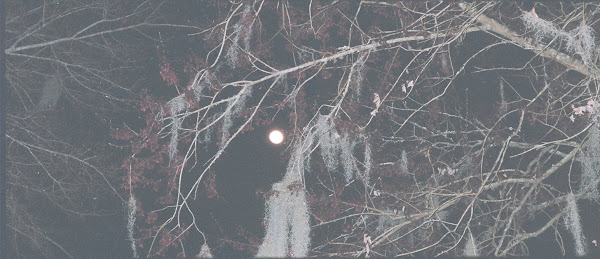
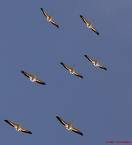
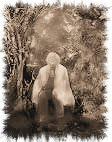.jpg)

.jpg)
.jpg)

